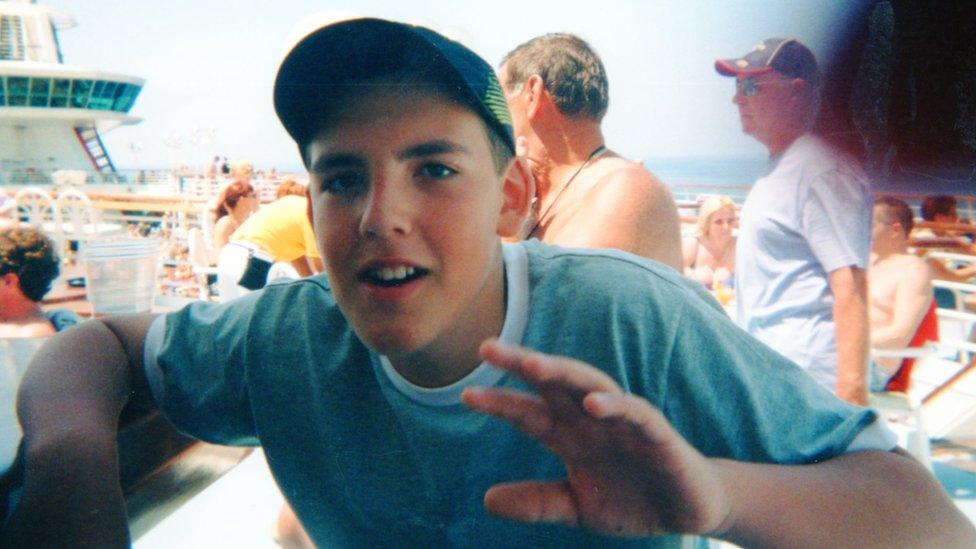Essex mental health service 'over-relied' on patient's family
- Published
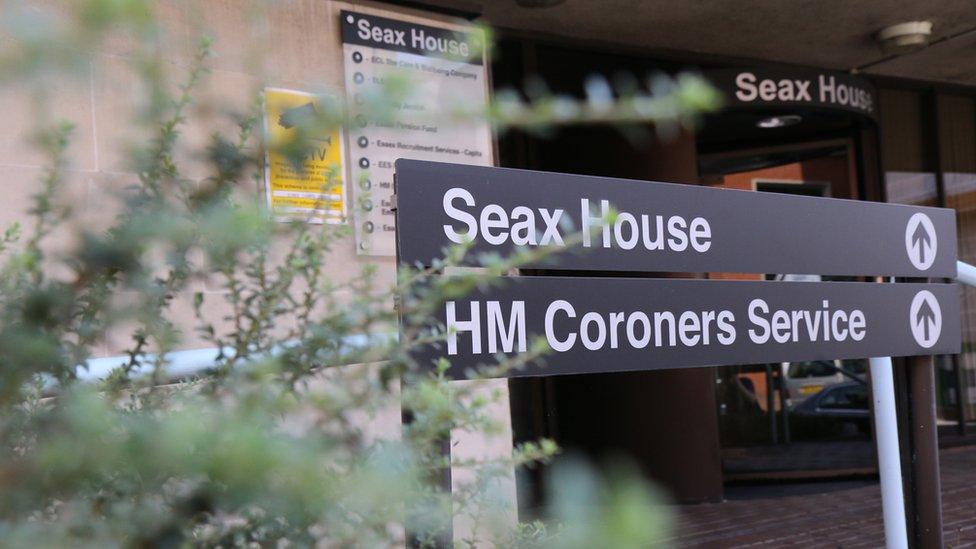
An inquest at Essex coroner's court heard there was an "unsustainable" burden on Ms Blackwood's family
Mental health services over-relied on a woman's family to keep her safe in the weeks leading up to her death, a coroner has warned.
An inquest in May concluded Johanne Blackwood, 55, took her own life while under the care of the NHS in Essex.
The hearing heard there was an "unsustainable" burden on family who tried to monitor her 24 hours a day.
The Essex Partnership University NHS Foundation Trust (EPUT) said it had improved the care plan process.

The coroner's report was sent to EPUT's administrative headquarters in Wickford, Essex
"An inappropriate over-reliance upon family members to keep a vulnerable and high-risk person safe in the community, over an extended period, probably contributed to Jo taking her own life," said area coroner Sean Horstead, in his prevention of future deaths report, external published last week.
"This over-reliance was misguided and placed an unfair and unsustainable burden on the family."
Ms Blackwood - who was being cared for in the community - had persistent delusional disorder, mixed anxiety, depressive disorder and panic disorder.
She died at railway tracks in Tilbury on 12 June 2021.
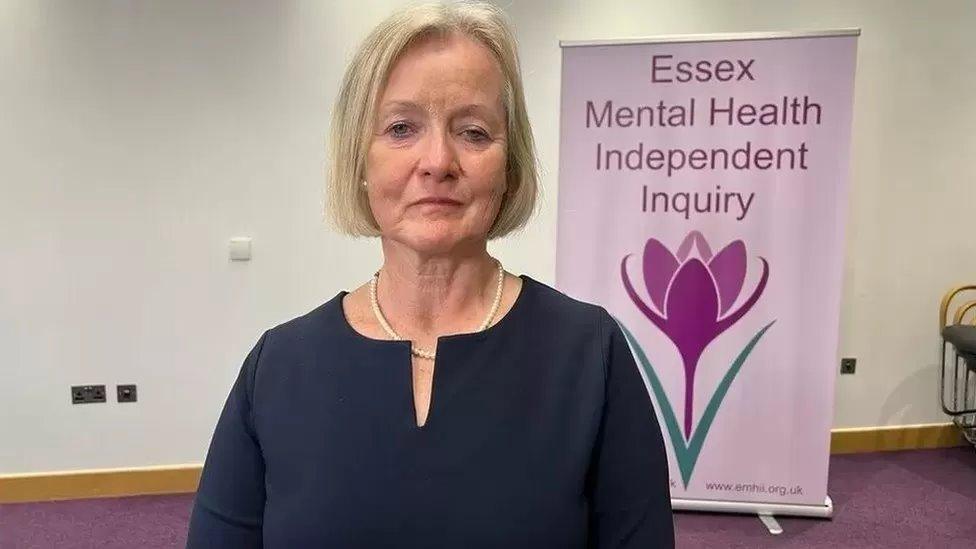
Dr Geraldine Strathdee is leading an inquiry examining "up to" 2,000 cases of people who died while receiving EPUT care over a 20-year period
In Mr Horstead's report, sent to trust chief executive Paul Scott, he said Ms Blackwood did not have an allocated care co-ordinator for "several weeks" in 2021 and the handover policy was unclear.
He said her community risk assessment, care plan and security plans were last updated in December 2020 and the "context" of the pandemic meant she was more "high risk".
'Learn lessons'
EPUT was asked to respond with an action plan within 56 days of the report's publication.
A trust spokesman said it had "implemented several measures" which included ensuring risk assessment and care plans were regularly reviewed, improving discharge processes to take into account individual needs and improving collaboration between teams.
"Providing high quality, safe and compassionate care is our absolute priority, and we are focussed on making sure we learn lessons from this very sad incident," the spokesman said.
NHS England's former national clinical director for mental health, Dr Geraldine Strathdee OBE, is leading a statutory inquiry looking into the deaths of "up to" 2,000 people who were cared for by EPUT between 2000 and 2020.

Follow East of England news on Facebook, external, Instagram, external and Twitter, external. Got a story? Email eastofenglandnews@bbc.co.uk, external or WhatsApp 0800 169 1830
Related topics
- Published28 June 2023
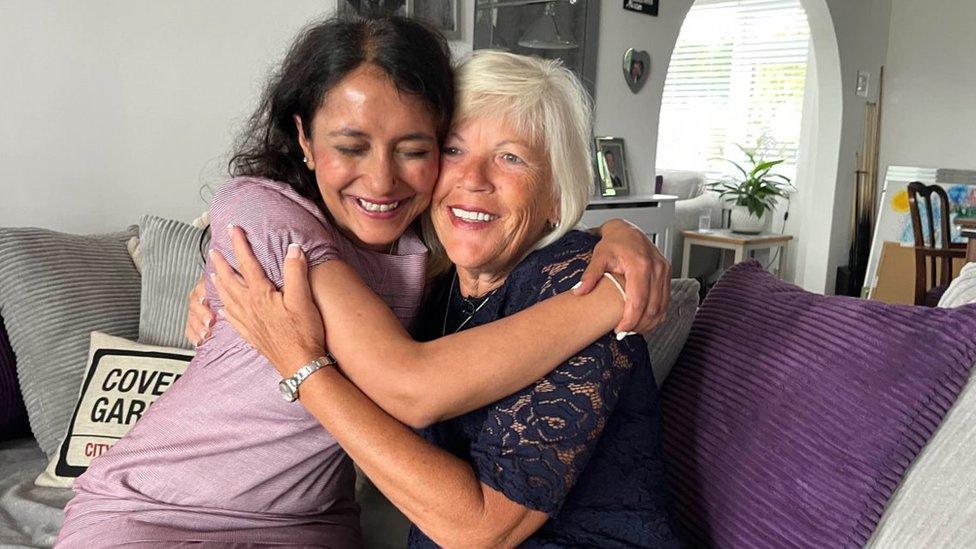
- Published17 July 2023
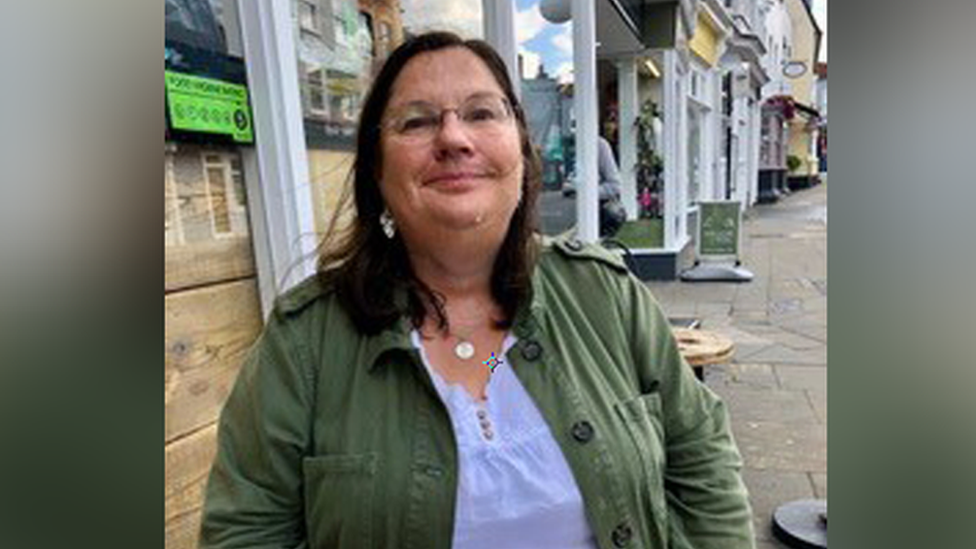
- Published19 October 2022
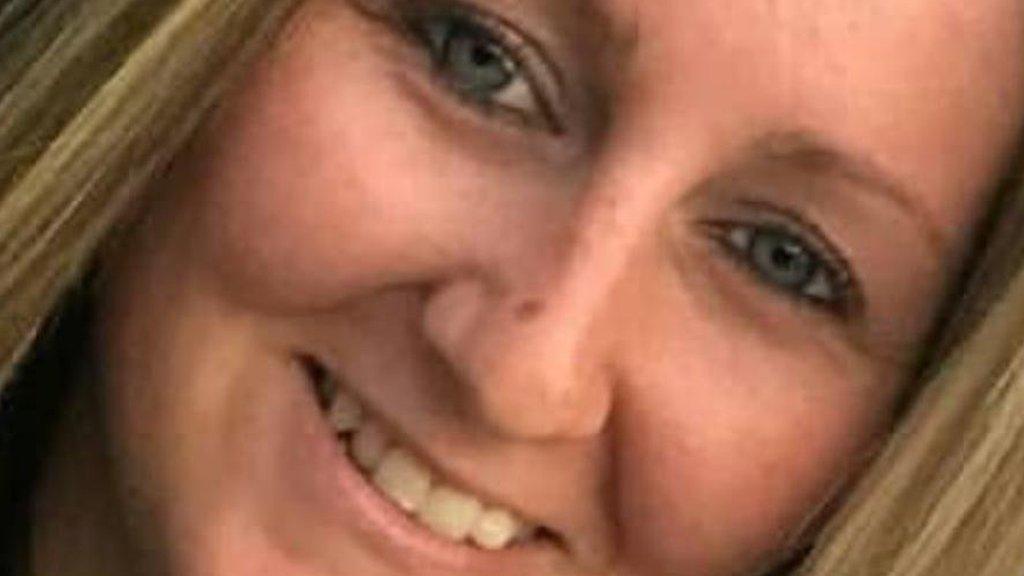
- Published16 June 2021
